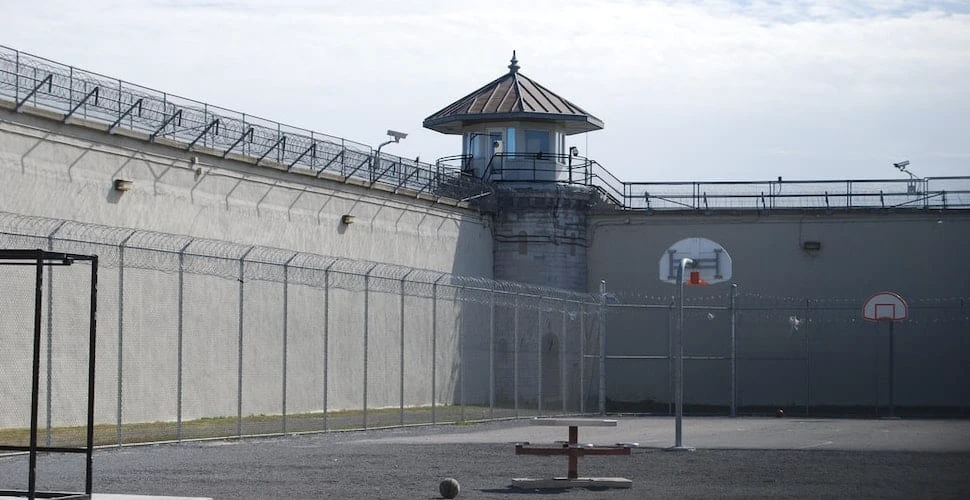As part of the Abolish Slavery National Network Freedom United is campaigning against the poor conditions facing incarcerated people in U.S. prisons. Together we are saying, “No slavery, no exceptions.” Because of the exception clause – or the punishment clause – of the 13th Amendment to the U.S. Constitution, incarcerated people in the U.S. can be forced to work in slave-like conditions in the 21st century.
Forced labor in prisons is often built into “rehabilitation” or “educational” programs. Many who are incarcerated report being threatened with solitary confinement or longer sentences if they refuse to work. In addition, incarcerated people are often paid nothing – or almost nothing – for their work, a situation that leaves them with almost no savings to re-enter society upon release.
In a comprehensive article from The New Daily (TND) we learn more about the situation of incarcerated people in Australia. The Borallon Training and Correctional Centre in regional Queensland is described as “a world leader in prison industries.”
Corporations profit from forced labor in prisons
Incarcerated people in Australia are paid a dollar an hour to perform menial tasks that provide no useful training for life after prison and undercut the wages of ordinary workers. To give a sense of exactly how low the prison wages are, state MP Fiona Patten, the leader of the Reason Party, explains that if an incarcerated person wants to call their child for 10 minutes, the prison charges that person two days’ pay.
Activist Brett Collins, who runs the prisoner advocacy group Justice Action, was incarcerated for 10 years and knows the issue up close. According to Collins, prisons maintain “effectively a slave labor force,” where inmates are forced to work if they don’t want to face even more difficult circumstances within the prison, and he adds, “It’s taking advantage of prisoners, making a profit, and it should not be a public function.”
For Collins and hundreds of activists around the world, there is a clear difference between employing incarcerated people to help with everyday tasks, such as cooking and cleaning, and helping big business profit from their labor. In fact, the low wages paid to inmates are used to undercut ordinary Australian workers, and Collins argues that unions should demand equal pay.
“They’re not training people to do jobs which are useful – they’re making sure that the maximum benefit is extracted from people’s time,” Collins added.
A totally immoral secret production process
The airline Qantas, and Bunnings, an Australian home hardware chain, are among the country’s corporations that use prison labor in a secret – and immoral – production process. Governments of different states of Australia hide the list of corporations that use this production scheme, but certain indications and statements allow us to discover who they are.
In early 2022, the natural pet food company The Golden Bone Bakery declared that it employed six people incarcerated at the Borallon Correctional and Training Centre in Queensland. Other Australian companies that reported using prison labor include Fantastic Furniture, Oroton, and Flower Power.
Professor Thalia Anthony, a criminologist at UTS, says the continued secrecy of state governments suggests that “these companies don’t value people in prison, and that it’s a reputational issue.”
In response to requests from the press and under the Access to Public Information Act, authorities in the states of Victoria and New South Wales refused to provide information, as some companies did not consent to disclose their use of prison labor.
Reason Party leader state MP Fiona Patten describes the response she has received when she has tried to ask the Victorian prison minister which companies benefit from cheap prison labor:
“The [Victorian] government constantly tells us that any agreements that they’ve made with various companies are commercial-in-confidence,” And added “Because they are so secretive about this, I can’t say with certainty, but from what I can see and from what I hear from people in prison, and from the families of people in prison, this is completely unethical.”
Minorities at the heart of the forced labor system
Just as the U.S. prison system disproportionately impacts African American and Latinx communities, so the Australian prison labor-related problems disproportionately affect Aboriginal and Torres Strait Islander communities.
Even though approximately 2% of the general population descends from First Nations, approximately one third of the prison population belongs to these communities. Experts consider them to be the most incarcerated group worldwide.
Professor Anthony, who has personally interviewed hundreds of prisoners as part of her academic research, noted that many First Nations people who are incarcerated are likely to have a disproportionately negative experience with prison labor due to systemic racism.
Take action on our campaign calling to outlaw slavery in the United States.







Freedom United is interested in hearing from our community and welcomes relevant, informed comments, advice, and insights that advance the conversation around our campaigns and advocacy. We value inclusivity and respect within our community. To be approved, your comments should be civil.
We have to fight this, so wrong that companies are taking away real jobs and using slavery to make profits. They either train them and pay full minimum wage or employ out of the prison system. In the meantime we can boycott any business we know using slave labour.
It’s good to see that the modern slavery discourse is actually tackling the institutions where slavery is so flagrantly and openly admired or at least tolerated by the public, not to mention the government which profits and maintains from it. Surely one of the central root causes of slavery in the modern world, dwarfing illegal slavery and providing a “socially acceptable” model for it
So paying a certain wage,removes the stigma of “slavery”?
Many incarcerated have never worked so this
is good training for them and phone call are better
than candy and cigarettes.